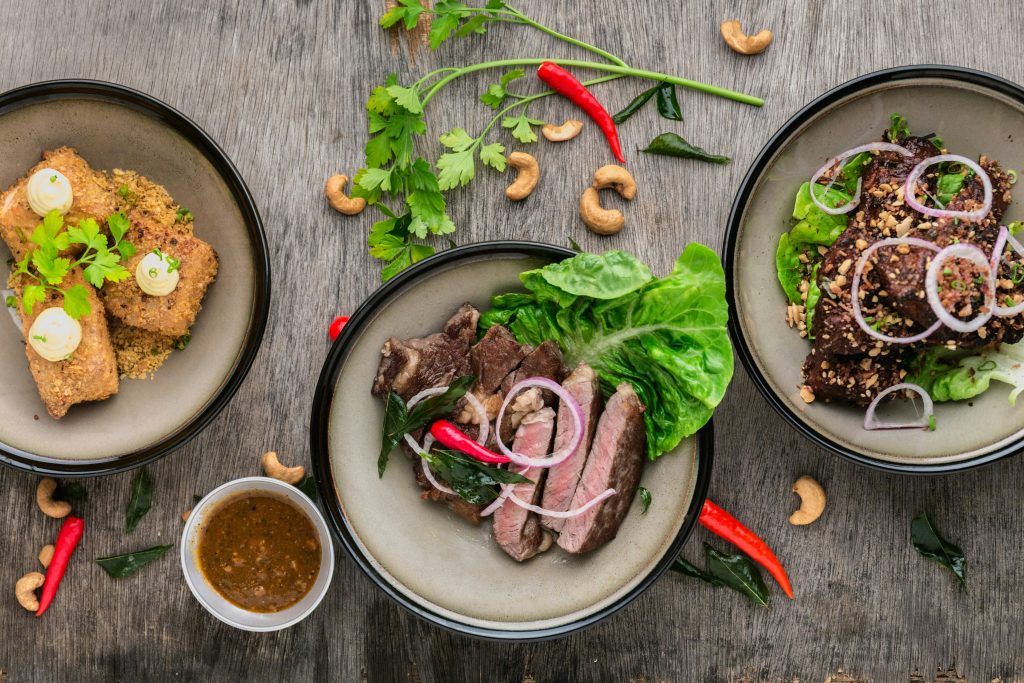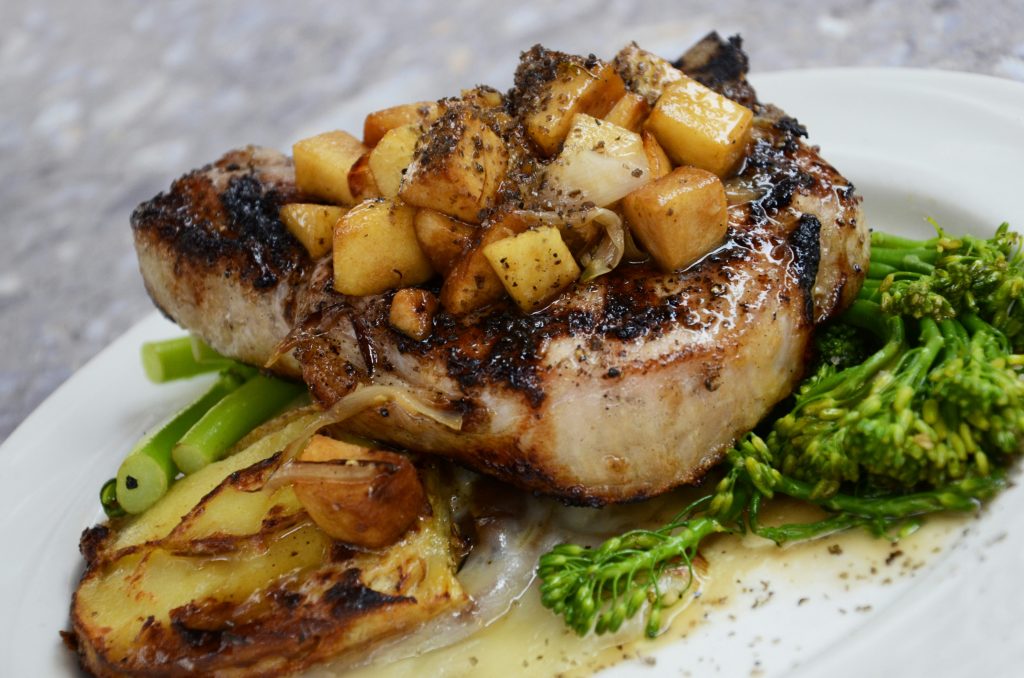The holiday season is a time of joy, celebration, and of course, indulgence. However, we all know how easy it is to overeat during this time, leaving us feeling sluggish and guilty afterwards. But fear not, because in this article, you will discover some simple yet effective strategies to help you avoid overeating during the holidays. From mindful eating techniques to portion control tips, these suggestions will empower you to navigate the tempting feast-filled days with ease and maintain a healthy balance throughout the holiday season. So, get ready to enjoy the festivities without the regret!
Table of Contents
TogglePlan ahead
The holidays are a time of celebration and indulgence, but it’s important to set realistic goals and create a schedule to avoid overeating. By thinking ahead and being proactive, you can enjoy the festivities while still maintaining a healthy relationship with food.
Set realistic goals
Before the holiday season starts, take some time to reflect on what you hope to achieve during this time. Instead of setting restrictive goals like losing weight or avoiding certain foods entirely, focus on goals that are more positive and centered around nourishing your body. For example, you might aim to incorporate more fruits and vegetables into your meals or find new healthy recipes to try.
Create a schedule
Having a schedule can help you stay organized and avoid the temptation to overeat. Plan your meals and snacks in advance, taking into account any special holiday gatherings or events. This way, you can ensure that you’re regularly fueling your body with nutritious foods and have a plan in place for when you’re faced with holiday treats. Additionally, make sure to schedule time for physical activity to help balance out any indulgences and keep your energy levels up.
Shop smart
When it comes to grocery shopping for the holidays, it’s important to be mindful of your choices. Make a shopping list before heading to the store, focusing on nutrient-dense foods like whole grains, lean proteins, and fresh produce. Avoid buying excessive quantities of unhealthy snacks or treats that may tempt you to overeat. Instead, opt for healthier alternatives like whole-grain crackers, air-popped popcorn, or dark chocolate to satisfy your cravings.
Mindful eating
Being present and practicing mindful eating can help you better understand your body’s hunger and fullness cues, leading to more balanced and enjoyable meals.
Be present
During holiday meals, it’s easy to get caught up in the excitement and socializing, often leading to mindless eating. Take a moment to pause and be fully present at the table. Engage all your senses by appreciating the aroma, color, and taste of the food in front of you. By being mindful, you can truly savor each bite and appreciate the flavors and textures.
Eat slowly
It takes time for your brain to register feelings of fullness, so it’s essential to eat slowly and give your body a chance to catch up. Chew your food thoroughly and take small breaks between bites. This will not only help you better enjoy your meal but also prevent overeating by allowing your body to recognize when it’s had enough.
Listen to your body
Your body knows best when it comes to hunger and fullness. Pay attention to the signals it sends you. Eat when you’re physically hungry and stop eating when you’re comfortably full. Avoid the urge to keep eating out of habit or because of external cues. By listening to your body, you can nourish it appropriately without overindulging.
Portion control
Portion control plays a crucial role in preventing overeating during the holidays. By being mindful of the quantities of food you consume, you can enjoy a variety of flavors without going overboard.
Use smaller plates
One simple way to control portions is by using smaller plates and bowls. This can trick your brain into perceiving larger portions as being more substantial. By reducing plate size, you’ll naturally serve yourself smaller portions, helping to prevent overeating.
Measure your food
If you’re unsure about portion sizes, use measuring cups or a kitchen scale to accurately measure your food. This can be especially helpful when serving calorie-dense foods such as nuts, oils, or condiments. By being mindful of portion sizes, you can have a better understanding of the amount of food you’re consuming.
Avoid going back for seconds
During the holidays, it’s common to see a wide variety of delicious dishes. While it might be tempting to go back for seconds, try to resist the urge. Instead, focus on savoring your first helping, and give your body time to assess whether you’re satisfied or not. Remember, you can always enjoy leftovers or save room for dessert later.
Make healthy choices
Choosing nutrient-dense foods and healthier cooking methods can help you make more conscious choices when it comes to your holiday meals.
Choose nutrient-dense foods
Rather than putting restrictions on what you eat, focus on incorporating nutrient-dense foods into your meals. Aim to include a wide variety of fruits, vegetables, lean proteins, whole grains, and healthy fats. These foods are rich in vitamins, minerals, and fiber, providing essential nutrients while keeping you satisfied.
Opt for healthier cooking methods
The way you cook your food can greatly impact its nutritional value. Instead of deep-frying or heavily buttering dishes, opt for healthier cooking methods like grilling, baking, steaming, or sautéing. These methods retain more nutrients while reducing the added fats and calories.
Include fruits and vegetables in every meal
Fruits and vegetables are not only packed with essential vitamins and minerals, but they also provide high amounts of dietary fiber, which promotes a feeling of fullness. Aim to include a serving of fruits and vegetables with every meal. Get creative by incorporating them into salads, stir-fries, smoothies, or even as snacks.
Stay hydrated
Staying hydrated is essential not just for overall health but also for managing cravings and preventing overeating.
Drink water before meals
Drinking a glass of water before meals can help you feel fuller and reduce the likelihood of overeating. Sometimes, feelings of thirst can be mistaken for hunger. By staying hydrated, you can better differentiate between the two.
Limit sugary beverages
Sugar-sweetened beverages like soda, fruit juices, and cocktails can be high in calories and lead to an increase in overall calorie intake. Limit your consumption of these beverages and opt for water, herbal tea, or infused water instead. If you do choose to have a sugary drink, try to do so in moderation.
Stay mindful of alcohol consumption
Alcoholic beverages can be a significant source of empty calories during the holidays. They can also impair judgment and lead to overeating. If you choose to drink alcohol, do so in moderation and be mindful of the calories it adds to your overall daily intake. Consider alternating alcoholic beverages with water or other non-alcoholic options to reduce the potential for overconsumption.
Manage stress
The holiday season can be a stressful time for many, and stress can often trigger emotional eating or lead to overeating. By managing stress effectively, you can better cope with these challenges and avoid turning to food for comfort.
Practice stress-reducing techniques
Explore different stress-reducing techniques that work for you, such as deep breathing exercises, meditation, yoga, or even taking a walk outdoors. Find what helps you relax and make time for these activities throughout the holidays. By reducing stress, you can minimize the urge to turn to food for emotional comfort.
Take time for self-care
Self-care is crucial for maintaining a healthy mindset and positive relationship with food. Make sure to prioritize self-care activities like taking a bath, reading a book, getting enough sleep, or engaging in hobbies you enjoy. Taking care of yourself physically and emotionally can help you stay focused on your goals and make healthier choices.
Seek support if needed
If you’re finding it particularly challenging to manage your emotions or develop healthy habits during the holidays, don’t hesitate to reach out for support. Talk to a trusted friend, family member, or professional. Having someone to listen and provide guidance can make a big difference in managing stress and avoiding overeating.
Stay active
Physical activity is not only essential for overall health, but it can also help support your goals of avoiding overeating during the holidays.
Engage in physical activity
Make an effort to engage in regular physical activity. Aim for a combination of cardiovascular exercises, such as walking or cycling, and strength training exercises to maintain muscle mass. Physical activity can help boost your mood, regulate your appetite, and provide an outlet for stress.
Incorporate movement throughout the day
Even if you can’t dedicate a specific time slot for exercise, find ways to incorporate movement throughout your day. Take short walks after meals, use the stairs instead of the elevator, or engage in active chores like cleaning or gardening. Every little bit adds up and helps keep your body active and your metabolism functioning optimally.
Find enjoyable holiday workouts
Make your exercise routine enjoyable by finding workout options that align with the holiday spirit. Look for holiday-themed fitness classes, join virtual workouts with friends, or try festive activities like ice skating or playing in the snow. By making exercise fun, you’ll be more likely to stick with it and avoid the temptation of sedentary behaviors.
Eat balanced meals
Creating balanced meals that include all food groups and macronutrients is essential for maintaining a healthy and satisfying diet during the holidays.
Include all food groups
Each meal should strive to include foods from all food groups: fruits, vegetables, grains, protein, and dairy. This ensures that you’re getting a wide range of essential nutrients while maintaining a balanced diet. Aim for a colorful plate that incorporates a variety of flavors, textures, and nutrients.
Balance macronutrients
In addition to including all food groups, it’s important to balance macronutrients within your meals. Include a source of lean protein, such as chicken, fish, or legumes, along with a healthy fat and complex carbohydrate. This combination provides sustained energy and helps you feel full and satisfied.
Avoid skipping meals
Skipping meals in an attempt to “save up” for a big holiday feast can backfire and lead to overeating later on. Instead, aim to have regular balanced meals throughout the day. Eating smaller, nutritious meals and snacks can help keep your blood sugar levels stable and prevent uncontrollable hunger.
Limit unhealthy options
While indulging in holiday treats is certainly part of the festivities, it’s important to choose your indulgences wisely and practice moderation.
Choose your indulgences wisely
Rather than mindlessly indulging in every treat that comes your way, take the time to choose the treats that you truly enjoy. Be selective and prioritize your favorite treats or traditional holiday dishes. By savoring and fully enjoying these indulgences, you’ll be more satisfied and less likely to overeat.
Avoid mindless snacking
Mindless snacking can lead to overeating without even realizing it. Before reaching for a snack, ask yourself if you’re genuinely hungry or just eating out of boredom or habit. Be mindful of portion sizes and opt for healthier snack options like fresh fruit, Greek yogurt, or raw nuts.
Practice portion control with desserts
Desserts are often a highlight of holiday celebrations, but they can also be a source of excess calories and sugar. Instead of completely avoiding desserts, practice portion control. Choose a smaller slice of cake or pie, or share a dessert with someone else. By mindfully enjoying a reasonable portion, you can satisfy your sweet tooth without overindulging.
Practice mindful cooking
When cooking during the holidays, it’s important to be mindful of the ingredients and cooking methods you choose. By making small modifications, you can create healthier versions of your favorite dishes while still enjoying the flavors and traditions.
Modify recipes to reduce fat and sugar
Look for ways to modify recipes to make them healthier. For example, substitute unsweetened applesauce or mashed banana for butter or oil when baking, or use Greek yogurt as a substitute for sour cream in sauces or dips. Reduce the amount of added sugar in recipes or experiment with natural sweeteners like honey or maple syrup.
Experiment with healthier alternatives
Explore healthier alternatives when cooking holiday dishes. For example, use whole wheat flour instead of refined white flour, or swap out high-fat ingredients for lower-fat alternatives. Get creative and try new ideas to lighten up traditional recipes without sacrificing flavor.
Cook with family and friends for support
Cooking with family and friends can be a fun and supportive way to stay on track. Share the responsibility of preparing meals and encourage each other to make healthier choices. Enjoy the process of cooking together and savor the delicious meals you create as a team.
By following these tips and being proactive in your approach, you can navigate the holiday season without overeating. Remember, it’s all about balance and listening to your body’s needs. Enjoy the festivities, savor the flavors, and make mindful choices that nourish both your body and soul. Happy holidays!









